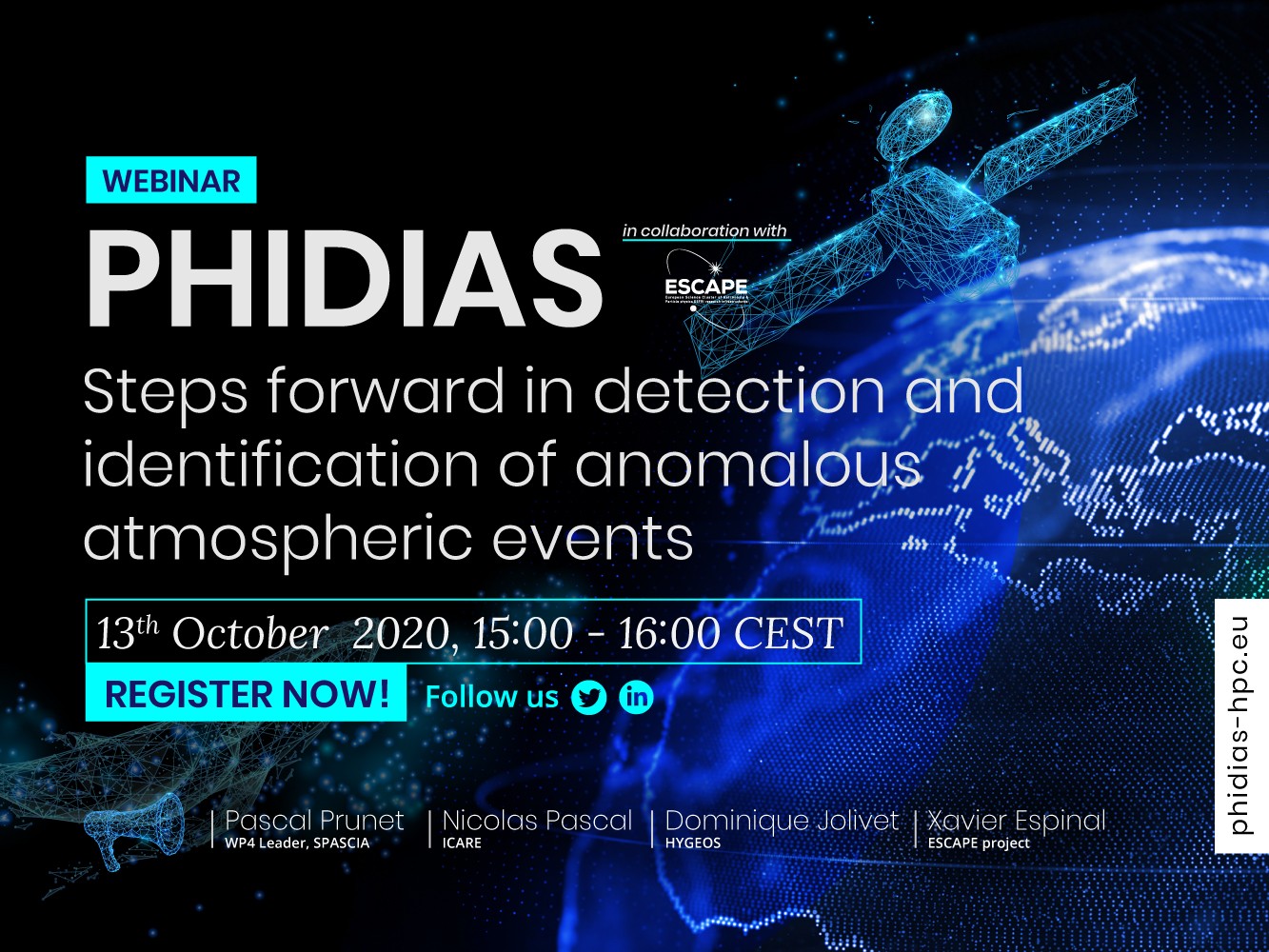PHIDIAS: Steps forward in detection and identification of anomalous atmospheric events

PHIDIAS (Prototype of HPC/Data Infrastructure for On-demand Services)(opens in new window) aims to become a reference point for the Earth science community enabling them to discover, manage and process spatial and environmental data, through the development of a set of High-Performance Computing (HPC) based services and tools exploiting large satellite datasets. The project will develop a consolidated and shared HPC and Data service by building on pre-existing and emerging infrastructure in order to create a federation of "user to infrastructure" services.
One of the three data area testing cases PHIDIAS has set up is the "Intelligent screening of a large amount of satellite data for detection and identification of anomalous atmospheric composition events". This use case will demonstrate new approaches for detecting, filtering and qualifying scenes and events of interest among the incoming flux of satellite atmospheric data, in view of their dedicated exploitation.
On 13 October 2020 at 15:00 CEST, PHIDIAS will host a webinar focusing on this use case entitled "Steps forward in detection and identification of anomalous atmospheric events" showcasing how PHIDIAS is going to improve the usage of HPC and high performance data management services for the development of intelligent screening approaches for the exploitation of large amounts of satellite atmospheric data in an operational context and presenting the most recent developments of this PHIDIAS use case. The webinar boasts the collaboration with the ESCAPE project (European Science Cluster of Astronomy & Particle physics ESFRI research infrastructures)(opens in new window), which aims to establish a single collaborative cluster of next generation European Strategy Forum on Research Infrastructures (ESFRI) facilities in the area of astronomy- and accelerator-based particle physics in order to implement a functional link between the concerned ESFRI projects and European Open Science Cloud (EOSC).
Discover the full agenda and register now!(opens in new window)
www.phidias-hpc.eu(opens in new window) | www.linkedin.com/company/phidias-hpc(opens in new window) | @PhidiasHpc(opens in new window)
Keywords
HPC, FAIRdata, e-Infrastructure European Data Infrastructure, supercomputing, EOSC


